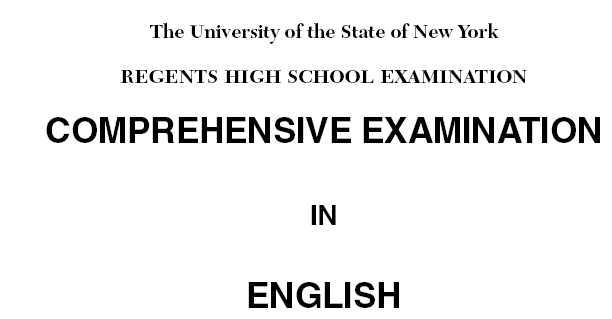I worked with several teachers yesterday to grade the New York State English Regents exam. It is our state's barrier test, one of the tests kids have to pass in order to graduate. While I'm no supporter, it's not a truly awful test and I actually enjoy grading it with the other teachers. We learn things each time though our sessions wouldn't rate highly on a staff development rubric. That might be why they are so valuable.
To score the Regents' essay we follow the state's rubric that is easy to follow but presents me with problems. After reading high-caliber essays (say from a wealthy suburban district) I come across a special-needs kid's essay and suddenly the rubric doesn't make as much sense. It reads differently than if I come to that same kid's paper after reading a bunch of middling essays. There is this feeling that a rubric takes the human element out of the process and makes it completely fair and unbiased, but it just ain't so.
And that's okay.
What I like grading these things because we see what kids can and can't do. Kids change generation to generation (go figure) and some of that is troubling, but I was just as troubling to my teachers. It's not the decline of Western Civilization. People do different things now and so what if they have no idea who Keats was. I barely know.
Here's the intriguing thing about the test scores: they haven't changed much in years. It's writing and reading and kids are about as good at those things (and about as bad too) as they have been for a long time. So I'm not much concerned with raising Regents scores. I'm a little concerned because legislators have tied my job security to such nonsense, but I don't worry about it much.
In my alternative school for at-risk kids, my job is to help kids become better people. I want them to be able to sit together, talk without fighting, and see kindness as a great thing. We learn a lot of that through writing. We develop compassion by reading. We talk, write, read, and watch movies. Stories are our fundamental tools. Tests are way down the list.
Still, I like getting together with my colleagues and talking as we grade esams. We discuss the kids, the tests, and the things we do in our classrooms. We talk about administrators, politicians, and education "reform." We share a sense of chagrin. We all got into this to help kids learn and love language. It's good to get together and remember what the tests show us: that, above all else, kids desperately need to read and write on.
